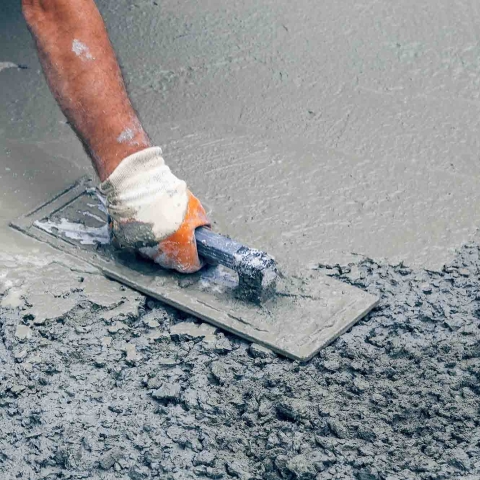Risk Control Tips for Your Concrete Contracting Business

Help lower potential dangers and improve the safety of your work
As a concrete contractor, it's important to take measures to protect your workers, your business, and your reputation.
Here are important tips to help you control risks effectively:
Boost Safety with Training: It's crucial your workers are well-trained to manage risks, recognize hazards, and avoid accidents. Train your team on concrete construction best practices, safety rules, and how to use safety gear.
- Exposure to concrete dust: Be mindful of the dust released into the air during cutting, grinding, or drilling. Inhaling these fine particles can pose significant health risks, including the possible development of respiratory issues like silicosis, a severe and potentially fatal lung disease. To help ensure the safety of you and your team, use proper ventilation, wear respiratory protection, and implement wet methods to control dust during operations.
- Risk of musculoskeletal injuries due to heavy lifting and repetitive movements: Handling heavy concrete forms, tools, and materials can put strain on the back, shoulders, and joints, which may lead to sprains, strains, or chronic injuries. To prevent these injuries, it is essential to train your team on proper lifting techniques, provide them with mechanical assistance when dealing with heavy loads, and encourage them to take regular breaks to rest and stretch their muscles.
- Use of heavy equipment and machinery: It is important to operate and maintain concrete pumps, mixers, and trucks correctly to avoid accidents such as equipment malfunctions, tip-overs, or collisions. Thorough training and regular equipment inspections are vital to ensure all machinery is in good working condition, reducing the likelihood of accidents and creating a safer working environment.
More information on concrete contracting hazards is available from OSHA.
Conduct a Thorough Risk Assessment: Before starting any project, carefully assess all potential hazards at the site, related to materials and equipment. Study past incidents and near-misses to learn from them and take preventive actions.
Enforce Strict Quality Control: Implement a quality control process with regular inspections and tests. This ensures that the concrete meets all necessary specifications and standards, reducing the risk of structural problems and expensive repairs later on. Use quality materials and follow industry best practices. Host safety meetings and workshops focused on safety precautions and regulations.
Secure Contracts and Insurance: Use contracts that clearly outline the scope of work, responsibilities, and liabilities. Properly drafted contracts help manage expectations, prevent disputes, and protect your business from potential legal issues. Also, make sure you have the right insurance coverage.
By using these risk control tips, you can help lower potential dangers, improve the safety of your work, and contribute to the overall success and reputation of your company.
Contact a local Indiana Farmers Insurance agent today for a quote for your concrete contracting business and help protect what matters most to you.
The information presented in this document is for informational and educational purposes only. It is intended to assist individuals, farmers, and business owners in identifying common hazards/risks and considering proactive loss prevention or loss mitigation actions. For information related to specific loss hazards, please contact your insurance agent.

